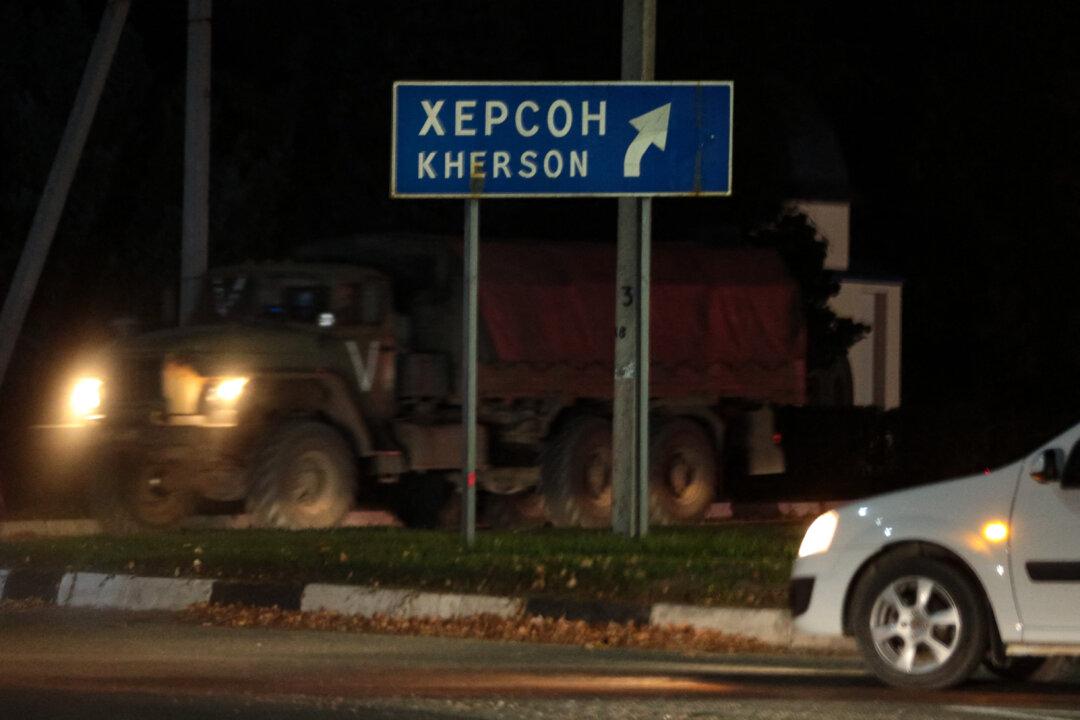Russian President Vladimir Putin paid an unannounced visit to the Russian-controlled regions of Kherson and Luhansk in Ukraine, where he met with top field commanders, the Kremlin said on April 18.
In a statement, the Kremlin said Putin had “visited the headquarters of the Dnipro Group of Forces in the Kherson sector and the Vostok National Guard headquarters in the [Moscow-recognized] Luhansk People’s Republic.”





